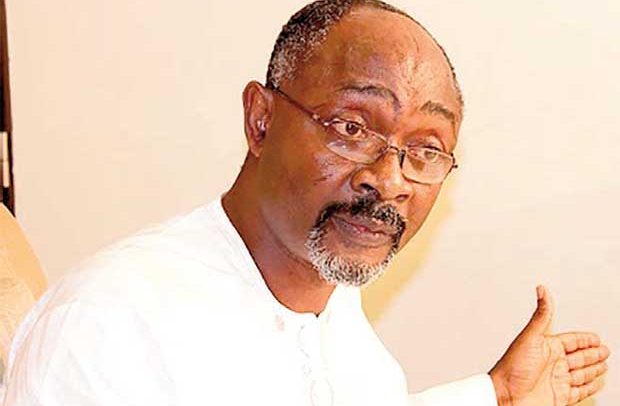Alfred Agbesi Woyome
The Attorney General has accused the Receiver of defunct UT Bank, PricewaterhouseCoopers (PwC) of conniving with embattled businessman Alfred Agbesi Woyome to frustrate efforts by the state to recover the GH¢52.1 million wrongfully paid to the businessman as judgment debt.
The state is struggling to sell some identified property of the National Democratic Congress (NDC) financier which the Receiver of UT bank claims to have bought from the businessman, and another used as collateral to secure a loan in excess of GH¢9 million.
The Attorney-General (AG), Gloria Akuffo, accused Eric Nana Nipa, one of the directors of audit firm, PwC, of colluding with Alfred Woyome, to prevent the state from selling his property to defray the debt owed the state.
The AG maintained that the businessman used the said property as collateral to secure a loan in excess of GH?9million from the bank months after the bank claimed to have bought the property.
Houses located at Trassaco Valley Estates and Accra New Town is the property identified by the state for confistication to recover the money.
The Supreme Court, in July this year, set October 15, 2018, to hear oral arguments from embattled businessman Alfred Agbesi Woyome, UT Bank, the AG and one Abena Akyea, on matters relating to some property belonging to the businessman.
There were claims that some of the property do not belong to him, which thwarted efforts by the state to confiscate them.
In furtherance of that, the apex court ordered defunct UT Bank and one Abena Akyea to prove that the said property belonged to them.
Witness Statement
The Receiver of UT Bank, Eric Nana Nipa, in his witness statement to the apex court, averred that the bank acquired the property from Mr. Woyome on April 5, 2013 and May 13, 2014 respectively.
He claimed the property at Accra Newtown was used by the businessman as collateral to secure a loan in excess of GH¢9 million from the bank.
Mr. Nipa further averred that Mr. Woyome’s company is yet to repay the loan, thereby making it difficult for the bank to pay its depositors and other creditors.
AG Disagrees
But the Office of the Attorney General has refuted the assertions by the Receiver that the bank bought the property.
According to the AG, the businessman used those property to secure a loan in excess of GH¢9 million from the bank months after the bank claimed to have bought them.
The state, in a witness statement, observed that the claims by the Receiver of the bank cannot be true, saying the bank allowed Mr. Woyome to use the Trassaco Valley Estate property to secure a loan on May 13, 2014, eleven months after the bank purportedly bought the property.
“The acceptance of plot number 267, Trassaco Estates Accra as collateral for a loan given by UT Bank to Mr. Woyome shows that to the knowledge of the bank, it never in truth and fact acquired plot number 267,” the state argued.
It said claims by the bank on the acquisition of the property located at Trassaco Estates cannot be true as “the same property was used by Mr. Woyome as a security for a loan given by the bank on May 13, 2014.”
The state’s witness statement signed by Stella Badu, a chief state attorney, revealed that claims by the Receiver are products of collusion between Mr. Woyome and UT Bank and “merely evidence of adroit but wicked machinations by Alfred Woyome to deny efforts by the state to enforce a judgment in this suit.”
“The purported deed of mortgage of the offer of a loan was made in anticipation of the review judgment in the suit, which was barely a month away,” it added.
With regard to the property at Accra Newtown, the chief state attorney stated that claims of ownership by private citizens, Abena Akyea and Eric Akuamoah and Godfred Opare-Djan, are completely false.
“The Attorney General will, in cross-examination, expose the falsity and dubiety of the claims,” the witness statement of the state added.
Oral Examination
Meanwhile, the Supreme Court, presided over by a single judge, Justice Alfred A. Benin, ordered lawyer for UT Bank to produce his client for oral examinations and cross-examination by the state in respect of the ownership of the property.
All the processes as directed by the court had been filed by all the parties involved, and Mr. Nipa was expected to mount the witness box to give evidence.
But when the case was called he was nowhere to be found, and his lawyer, J.A. Akuaku Jnr, told the court that he was not aware the oral examination would begin immediately.
He said he thought the court would give further directions on the matter after the filing processes.
When reminded that the case was scheduled for hearing, he told the court that his client had travelled and prayed the court for a brief adjournment to enable him appear before court.
The presiding judge, who was not impressed, bemoaned the delay in the case and directed the lawyer to tell his client to come to court every Monday until the case is determined.
Identified Property
Deputy Attorney General, Godfred Yeboah Dame, indicated that the state has identified five property belonging to Woyome each worth about $1.5 million.
He hinted that the state would stop at nothing to recoup the money from Mr. Woyome, saying no amount of delay tactics employed by the embattled businessman would stop the state from getting back the money he fraudulently received as judgment debt.
By Gibril Abdul Razak


